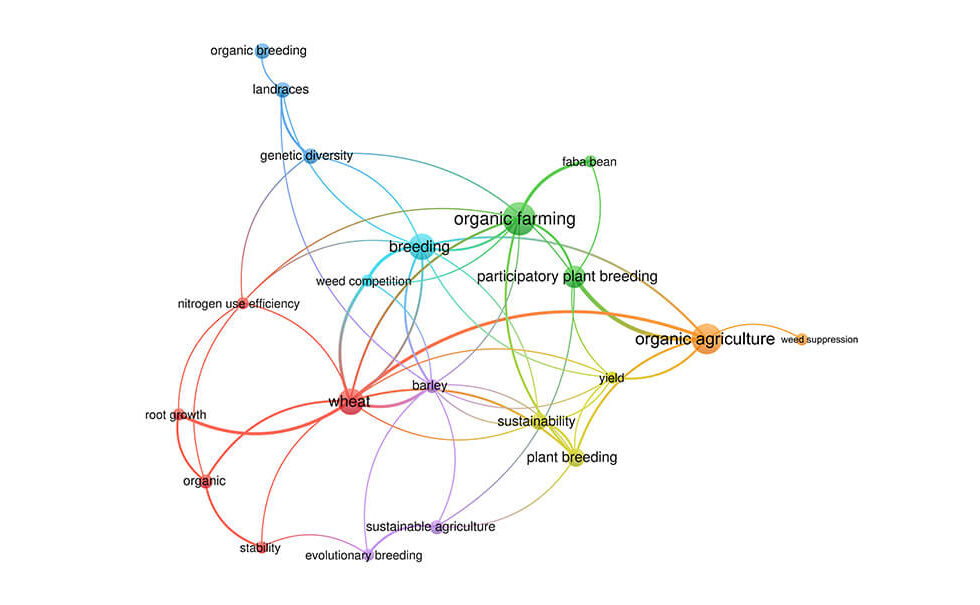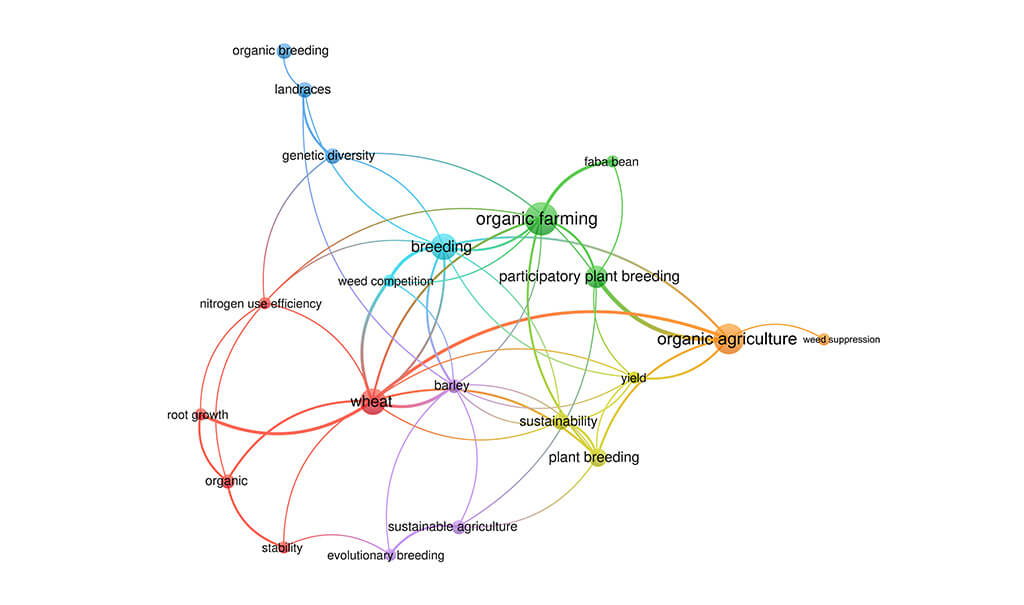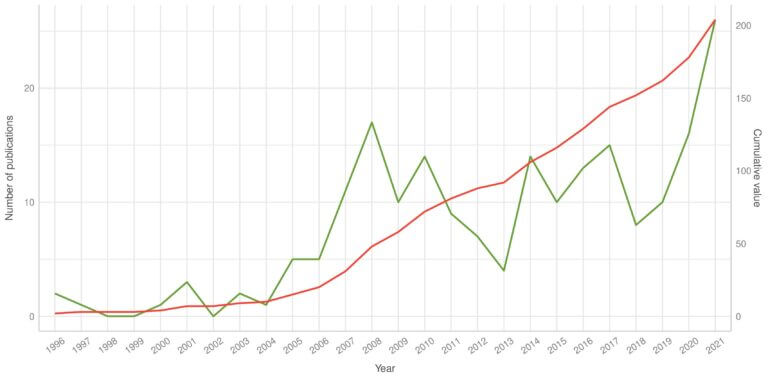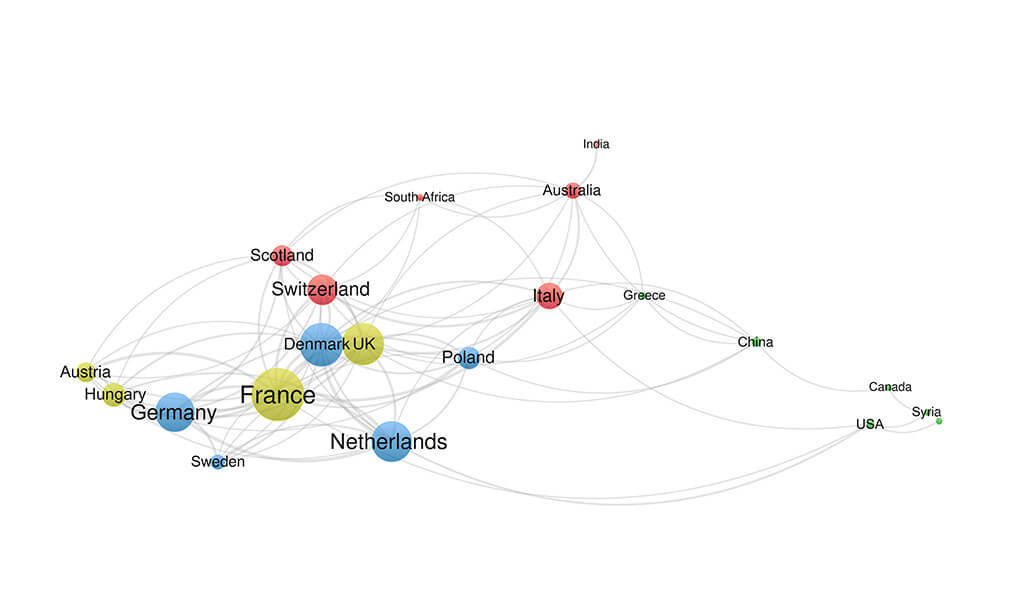Njamito Goes Fairtrade for Cocoa and Vanilla
March 31, 2025Njamito is now Fairtrade certified for cocoa and vanilla! Here’s what that means for farmers, the planet, and the values behind our meal-in-a-bottle.
Read articleLoginEKO conducted a bibliometric study to provide invaluable insights to the scientific community dedicated to organic plant breeding. Read what we’ve found out.

As concerns over the negative impact of intensive agriculture on the environment and human health continue to rise, organic farming has gained popularity in recent decades. The global demand for organically produced crops is on the rise, but a key question remains: Can organic farming meet the food needs of a projected population of 10 billion people by 2050?
Studies comparing organic and conventional agriculture have shown that, on average, organic systems yield crops 20% lower than their conventional counterparts. This disparity is mainly due to the use of modern cultivars bred for high-input production, involving artificial fertilizers, herbicides, and other chemicals against pests and diseases. To overcome this challenge, the development of cultivars specifically adapted to organic systems, capable of thriving with minimal external inputs, holds lots of promise.
While reviews on plant breeding in organic agriculture abound, a comprehensive bibliometric analysis on this specific topic has yet to be undertaken. This study conducted by LoginEKO’s experts aims to fill that gap by employing bibliometric science mapping and visualization tools to analyze publications related to “organic plant breeding” in the agronomy category of the Web of Science (WoS) database from 1996 to 2021. By examining this vast body of literature, the study seeks to provide invaluable insights and data to the scientific community dedicated to advancing the development of organic farming-friendly varieties. Here is a summary of what they’ve found.
Organic plant breeding, as defined by Lammerts van Bueren and Myers (2012), is the plant breeding for organic systems or plant breeding carried out under organic conditions. This includes several fundamental principles. Firstly, the genome is regarded as an indivisible entity. Secondly, the plant cell is respected as an indivisible functional entity, and methods of genetic engineering are excluded. And thirdly, the natural reproductive ability of a plant variety is respected and maintained. In addition, organic plant breeding places great importance on sustainability and the promotion of agricultural biodiversity.
Despite the remarkable growth witnessed in the organic sector over the past few decades, more than 95% of crop varieties still originate from conventional plant breeding methods. The predominant challenge lies in the unavailability of modern cultivars with the desired traits necessary for organic production, such as nitrogen use efficiency, competitiveness against weeds, resilience to biotic and abiotic stresses, and optimal quality and nutritional value.

The bibliographic dataset comprised 204 analyzed documents from 53 different sources, providing valuable insights into the field of organic plant breeding. Over the observed time, a notable trend emerged, showcasing a consistent increase in the number of publications. LoginEKO’s colleagues found that in total, 65 countries and 337 institutions are active in the field of organic plant breeding, reflecting a significant level of international collaboration. The leading countries in terms of publication output were the United States, Italy, Germany, France, and Canada, while the most active institutions were Wageningen University, Iowa State University, the University of Alberta, the University of Copenhagen, and the University of Hohenheim.
Organic plant breeding emerges as a highly collaborative research area, as evidenced by the analysis of connections between countries and institutions. The analyses of citations further highlighted the global impact of certain research articles, indicated by their substantial number of citations. In addition, keyword clustering revealed groups of terms specific for the organic systems, emphasizing the importance of traits sought after in breeding varieties suitable for organic production.
Despite the encouraging growth in publication numbers, further expansion and development of organic plant breeding are needed. This expansion should encompass the implementation of novel plant breeding techniques and methods, focusing on improving traits that are specifically relevant to organic conditions.

The applied bibliometric analysis sheds light on areas where organic breeding can be further improved, particularly through the integration of underutilized modern technologies, as indicated by the analyzed publications. The adoption of new genotyping tools, accompanied with high throughput phenotyping methods and testing under organic conditions, holds potential for the development and application of genomic prediction models. This would significantly accelerate the breeding cycle, facilitating the rapid release of new varieties adapted to organic production conditions.
Furthermore, the utilization of advanced remote-sensing techniques, which have witnessed significant advancements in recent years, offers possibilities in the analysis of specific traits crucial for organic systems, such as nitrogen use efficiency, weed competitiveness, and resistance to pathogens. Moreover, novel biofortification methods play a vital role in improving product quality by enhancing the absorption and accumulation of essential nutrients while simultaneously reducing antinutritive compounds.
While efforts are being made to promote the dominance of organic plant breeding, certain obstacles hinder its expansion and development. One significant challenge revolves around financing, as organic breeding lacks the intellectual property rights enjoyed by conventional breeding, such as Plant Variety Protection (PVP) and patents. To overcome this hurdle, a novel strategy involving stakeholders across the entire value chain and food consumers is necessary to secure funding for organic plant breeding.
Additionally, research activities should be supported by science funding programs, such as the proposed budget of nearly 100 billion EUR for the Horizon Europe call until 2027, with a focus on sustainability. This presents an excellent opportunity for the scientific community involved in organic plant breeding to realize their ideas through research projects. Lastly, enhancing genetic diversity and utilizing varieties suitable for organic systems are vital for the continuous improvement of organic food production. By addressing these challenges, organic plant breeding can greatly contribute to the sustainable future of agriculture.

***
Mitrović, B., Zorić, M., Terzić, S., Živanov, D., Čanak, P., Milošević, B., & Karagić, Đ. (2023).
Evidence of scientific research on organic plant breeding: A bibliometric study. Plant Breeding, https://onlinelibrary.wiley.com/doi/full/10.1111/pbr.13117
Njamito is now Fairtrade certified for cocoa and vanilla! Here’s what that means for farmers, the planet, and the values behind our meal-in-a-bottle.
Read articleIdealism met reality as we launched our meal-in-a-bottle, Njamito. After 100.000 bottles sold, here’s what we learned about organic food and market adaptation.
Read articleWith organic seeds in short supply, we launched our own organic seed production journey to secure sustainable farming practices.
Read article